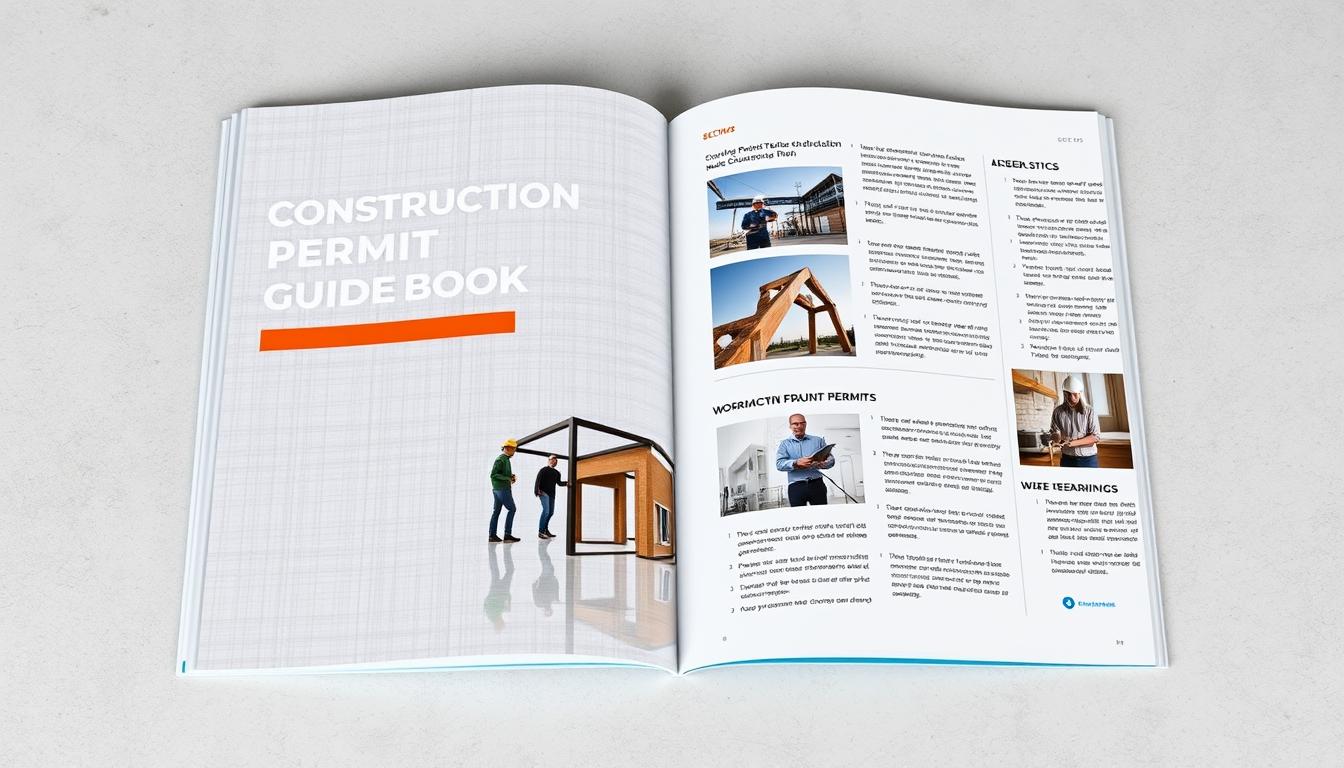Choosing the right contractor can make your home improvement project go smoothly. Knowing the right questions to ask is key to a successful project. JFerguson Construction knows how important this is for homeowners in Chico, CA.
Starting a construction or renovation project can be daunting. Asking the right questions to contractors can give you confidence. You want to work with someone who gets your vision, stays within your budget, and does great work.
Vetting contractors is more than just checking their credentials. It’s about finding a partner for your home improvement dreams. With the right approach, you can avoid risks and be happy with the results.
Key Takeaways
- Ask detailed questions about experience and past projects
- Verify licensing and insurance documentation
- Request comprehensive project timelines
- Understand payment structures and contract terms
- Check references and previous client testimonials
- Discuss potential project challenges upfront
- Confirm clear communication channels
Why Properly Vetting Your Contractor Matters
Choosing the right contractor is crucial for your home renovation. It protects your money and ensures quality work. Homeowners who pick their contractor wisely have smoother projects and better results.
- Verify professional credentials and licenses
- Check comprehensive work history
- Read detailed customer reviews
- Inspect previous project portfolios
Understanding the Financial Investment
Home renovations cost a lot of money. Good vetting helps you know the real cost and avoid surprises. Experienced contractors give clear prices and estimates, keeping your budget safe.
Protecting Your Property and Investment
Good contractors do more than just finish a job. They also protect your property during the renovation. Vetting contractors means choosing experts who care for your space, use the right methods, and follow safety rules.
Avoiding Common Contracting Scams
Not all contractors are honest. By using strict contractor selection criteria, you can spot scams and stay safe. Look for well-known professionals with good reputations and proven track records.
Your effort in choosing the right contractor will reward you with better project quality, peace of mind, and a higher home value in the long run.
Essential Questions to Ask Contractor Before Hiring
Finding the right contractor is key to a successful home improvement project. It’s important to prepare a list of questions to ask them. This helps you find someone reliable who fits your needs.
When you interview contractors, aim to get all the details about their skills, work style, and dependability. The right questions can show you what a contractor can really do. This helps you make a smart choice.
- Verify the contractor’s professional credentials
- Understand their project experience
- Assess communication and responsiveness
- Examine past project portfolios
There are key areas to cover in your contractor interview:
- Licensing and Insurance: Confirm current professional certifications
- Project Timeline: Discuss expected start and completion dates
- Cost Breakdown: Request detailed estimates and payment schedules
- Subcontractor Management: Understand who will perform specific work
Good contractors are happy to answer all your questions. They know that being open builds trust and shows they care about quality. You want to be sure they can bring your ideas to life.
Licensing and Insurance Requirements for Contractors
Protecting your home starts with knowing about contractor licenses and insurance. Choosing the right contractor means looking at their legal and professional background. It’s not just about what they promise.
Contractors are key in home projects. Their skills and legal standing can affect your investment. A good contractor offers skills and legal protection.
Types of Required Insurance Coverage
Contractors need several insurance types for safety:
- General Liability Insurance
- Professional Liability Insurance
- Property Damage Coverage
- Vehicle Insurance for Work Trucks
State-Specific Licensing Requirements
Licensing rules for contractors vary by state. Important factors include:
- Minimum years of experience
- Passing state exams
- Keeping certifications up to date
- Showing financial stability
Importance of Worker’s Compensation
Worker’s compensation insurance protects both contractors and homeowners. It covers medical costs if someone gets hurt on your project. Always check a contractor’s worker’s compensation before you sign anything.
Choosing a contractor with the right insurance and licenses reduces risks. It gives you peace of mind during your home improvement project.
Understanding Project Timeline and Schedule Management
Effective contractor project management starts with a clear timeline. When hiring a contractor, understanding the project schedule is key. A well-structured timeline helps homeowners plan their lives and sets clear expectations.
Key aspects of contractor communication skills involve transparent scheduling. Homeowners should expect their contractor to provide:
- Detailed project milestones
- Estimated completion dates
- Potential contingency periods
- Regular progress updates
Professional contractors use sophisticated tools to track progress and communicate. Realistic timelines account for potential challenges like material delays or weather. A skilled contractor will discuss these challenges early on.
When discussing project timelines, ask your contractor specific questions:
- What are the critical milestones for this project?
- How will unexpected delays be communicated?
- What is your typical response time for project updates?
- Do you have a digital tracking system for project progress?
Selecting a contractor with strong project management skills ensures your project stays on track. It will be within budget and meet your expectations.
Payment Terms and Contract Delivery Methods
When you hire a contractor, knowing how you’ll pay is key. The money part of your deal can either make or break it. It’s important to pick a contractor who has clear payment terms.
Understanding payment terms takes time and talking openly. The Better Business Bureau says don’t pay the whole amount at the start. A good contractor will work with you to set up a payment plan that’s fair for both sides.
Common Payment Structures
When you hire a contractor, you’ll see a few payment ways:
- Milestone-based payments
- Progress billing
- Time and materials contracts
- Fixed-price agreements
Contract Types and Their Benefits
There are different contract types, each with its own perks. Fixed-price contracts are good for knowing the cost upfront. Cost-plus contracts are better for complex projects because they’re flexible. Your choice depends on your project’s size and complexity.
Handling Additional Costs
Unexpected costs can happen in any project. To protect yourself, do the following:
- Talk about possible extra costs before starting
- Ask for a written process for changes
- Set a budget cap
- Keep a reserve fund
Choosing the right contractor means clear money talks. Always ask for detailed written estimates and know what’s in the first quote.
Property Protection and Site Management
When looking for contractors, protecting your property is key. Good contractors know how to keep your home safe during work. They should show how they manage the site and protect your property during checks.
Responsible site management includes:
- Daily clean-up and debris removal
- Protective coverings for furniture and floors
- Dust control and containment strategies
- Securing work areas to prevent unauthorized access
- Careful handling of existing landscaping and structures
Experienced contractors use detailed protection plans. These plans show they respect your property. Ask them about their protection strategies for your home.
Good contractors are open about their site management. They explain how they’ll keep your property safe and minimize disruption. If they’re willing to talk about their plans, it’s a positive sign.
Homeowners can ask for a written site protection plan. Discussing expectations before work starts is also smart. This way, you can have a respectful and smooth renovation.
Experience and Background Verification
Choosing the right contractor for your home project is key. It’s not just about looking at their resume. You need to check their work history, reliability, and reputation.
Start by using different ways to check contractors:
- Request and contact professional references
- Review online ratings and customer testimonials
- Check state licensing databases
- Investigate past project portfolios
Visiting the contractor’s job sites is also important. A well-run site shows their work ethic and attention to detail. Look for:
- Organized work areas
- Clean and maintained equipment
- Professional worker conduct
- Efficient project management
Online platforms like professional networks and local business groups can help too. Doing thorough research helps homeowners choose the best contractors.
Conclusion
Hiring a contractor can seem daunting, but with the right questions, it becomes easier. Knowing what to ask and look for makes the process smoother. This knowledge turns a confusing experience into a successful partnership.
JFerguson Construction believes every project, big or small, needs careful attention. By following the guide for hiring a contractor, you protect your investment. Asking the right questions builds trust and ensures clear communication with your contractor.
In the greater Chico, CA area, JFerguson Construction offers expert services. They provide general contracting, defensible spaces, home renovations, and restoration. Our team is ready to help with your project. Contact us at (530) 680-6228 for professional guidance and quality work.
Choosing the right contractor is key to a successful home improvement project. A good contractor listens, understands your needs, and delivers great results.







